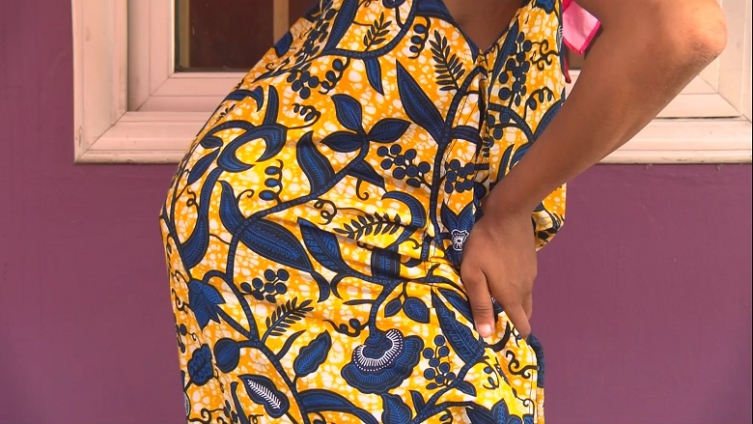Teenage pregnancy, in the past years, has hindered many young girls from continuing their education - some of them because of the fear of being ridiculed and others, perhaps did not think it was possible for them to continue their school.
But for some girls in some parts of the Volta Region, dropping their education because of pregnancy is not an option.
One such girl is Shika (not her real name). She is currently in her first trimester of pregnancy. She fell pregnant one night when she attended her boyfriend's unsupervised birthday.
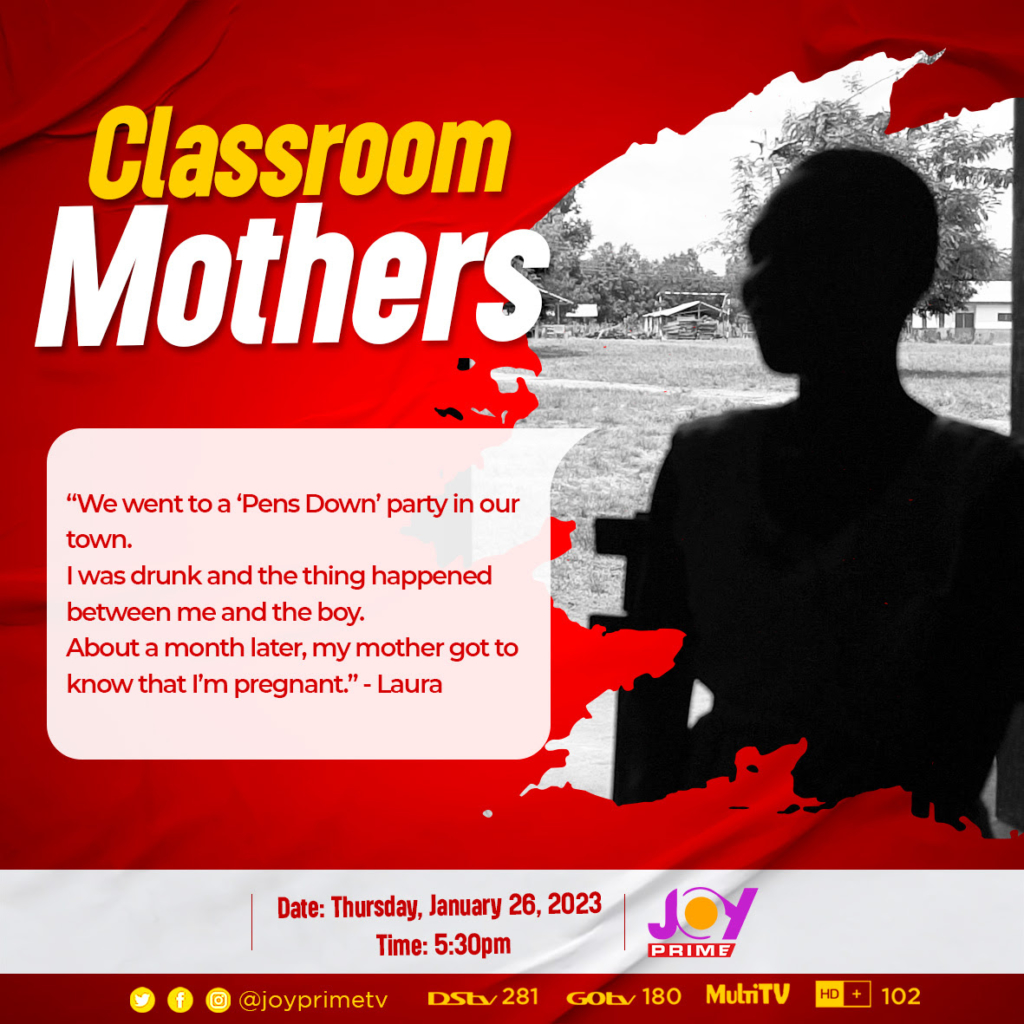
According to her, she got drunk and had sex with her boyfriend unknowingly. For weeks after the party, Shika did not know her partying had brought forth an unexpected pregnancy.
Shika told Joy Prime’s Emmanuel Dzivenu that she had gone to the hospital to donate blood to a sick relative only to be hit by the news that she was three months pregnant.
Disappointed in herself, the 18-year-old called her grandfather to inform him about the pregnancy.
“I was sad because I know that this is not the right time. I suppose to concentrate on my studies,” she said fearing that her choices may jeopardize her education.
Shika was raised by her grandfather and does not know her mother and father thus breaking the news to their grandfather was difficult. But when she eventually did, her grandfather insisted she returns to school.
“He was like, I should not give up. I should come back to school so when it is time to deliver, I will deliver then come and continue my education. I was disappointed but he said I will make it so I know I will make it.”
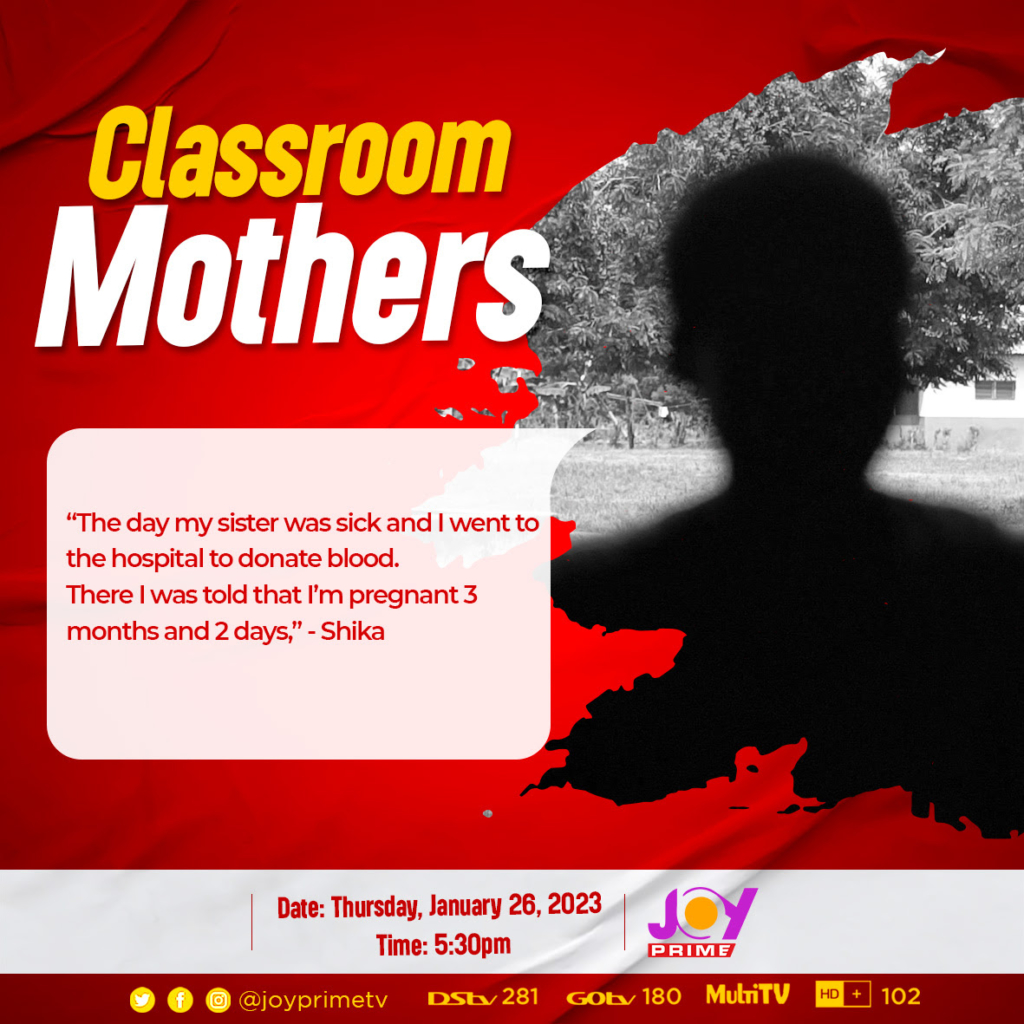
Also, the senior housemistress at Adidome SHS, where Shika is a student, says they try their utmost best to ensure pregnant or nursing mothers do not drop out.
Mercy Dzifa Afi Akwada said “averagely, a semester, about 10 girls get pregnant. Even these first years, currently as they came to school, two of them were pregnant. We were able to handle it. They have given birth and they are back to school.”
She explained that when a student is suspected to be pregnant they are monitored both by teachers and prefects.
When symptoms persist they are taken to the hospital and if the test is affirmative they inform their parents and plan on the way forward.
The Senior Housemistress has a plan for pregnant girls to prevent them from dropping out of school.
“We calm them down, and we monitor them. I monitor their antenatal care and their food. Sometimes, I do give them food if need be and we give them money if need be. The parents also come in, and when it is almost time for the child or the girl to give birth, we allow the girl to go home, give birth, and, in 3 months’ time, the girl comes back to school.”
Although the school welcomes pregnant and nursing mothers, Madam Mercy revealed a few students choose not to return.
Despite their welcoming stance on pregnancy and schooling, Madam Mercy said the school tries its best to educate the students on pre-marital sex and its dangers.
According to the Senior Housemistress, her primary campaign was to encourage students to abstain from sex. But in recent times, she has added protected sex to her education.
In the same pot as Shika is 17-year-old Laura. Laura (not her real name) has a four-month-old baby. In spite of her circumstances, she is determined to complete her secondary school.
Laura became pregnant shortly after taking the Basic Education Certificate Exam (BECE). She attended an after-school celebration party after completing junior high school.
“When we completed JHS3, we went to a "Pens Down" party in our town. When we came back, I was drunk, and the thing happened between me and the boy. About a month later, my mother got to know that I’m pregnant.”
Laura initially consented to aborting the fetus but the fear of losing her life in the process haunted her, so she decided to keep the pregnancy.
She then enrolled at Adidome SHS to study home economics while pregnant.
It may have been her choice to keep the pregnancy and attend to her studies as well but the journey Laura said was not a walk in the park.
Seeing her friends sans pregnant bellies also fueled her sadness which left her in tears sometimes. But she said her friends were supportive of her regardless of the situation.
“I managed to bring it (the pregnancy to school). When I came too, my friends were like I shouldn’t worry. They will take care of me. I was ashamed, but I managed to stay here till June. We didn’t vacate before I went home, and in July, I gave birth. I delivered on 1st July.”
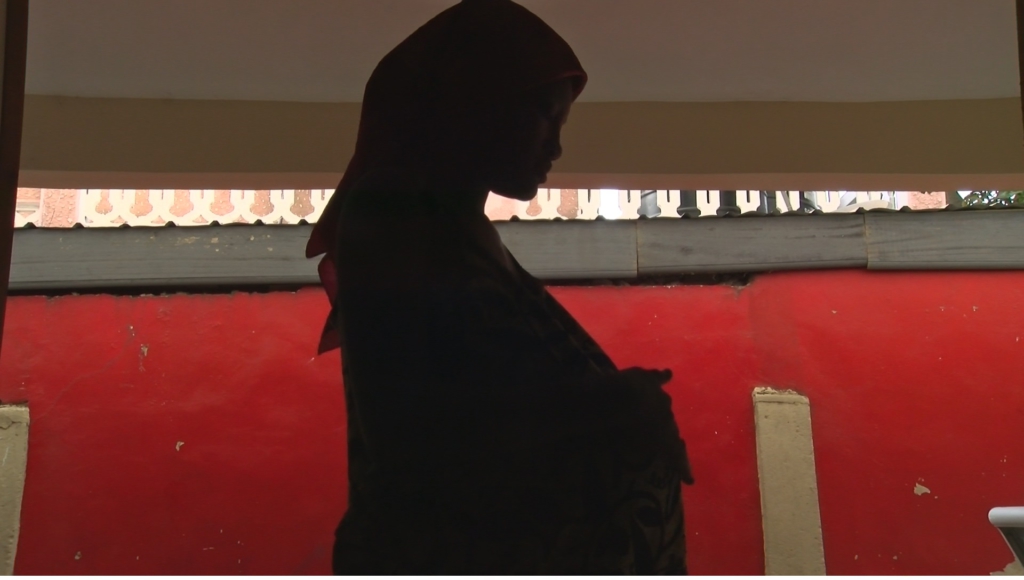
Laura was granted a leave of absence three weeks before she gave birth.
The now 17-year-old mother said her mother agreed to take care of the baby while she returned to school to continue her education.
Gina is 17 years old and in her final year in school. She gave birth barely two weeks ago. Just like Shika, she had come home for vacation and got pregnant.
Soon after, she went back to school. She dreaded the worst after two months of missing her period. Gina did not tell her mother or the aunt with whom she stayed that she was pregnant.
But in her fifth month, her teacher, who had learned about it, could not keep the issue away from the family.
She was thrown out of the house and asked to go and stay with the one who got her pregnant so she packed out and went to stay with her 22-year-old boyfriend.
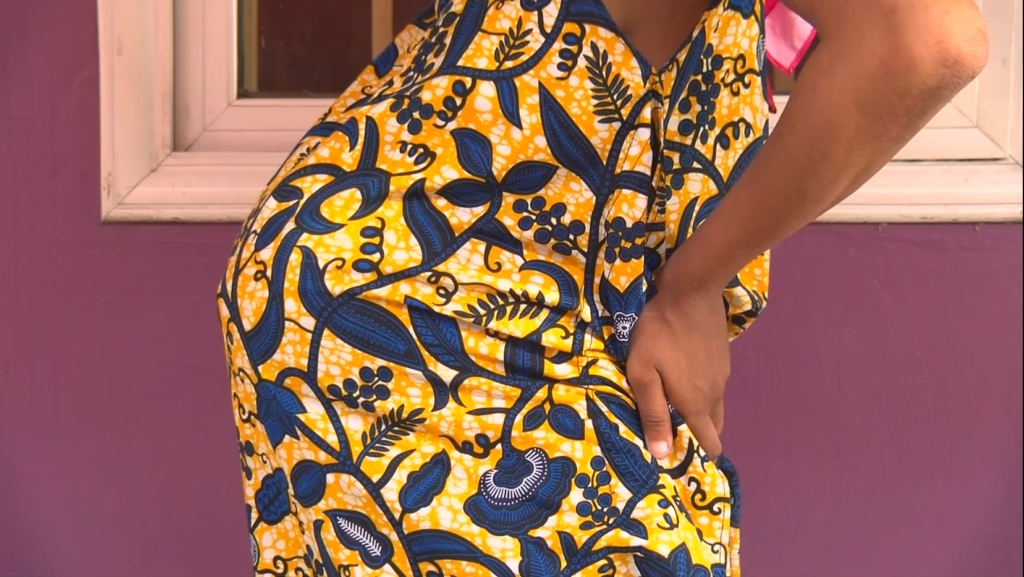
Gina yearns to return to school to prepare for the final exams but she fears that without support, that will be a mirage.
Shika, Laura and Gina represent thousands of teenage girls who get pregnant annually in Ghana.
Over the last five years, the Ghana Health Service District Health Information Management System reported that more than 500,000 school girls became pregnant.
Over 13,000 girls that got pregnant are between the ages of 10 and 14, while some 500 thousand are between the ages of 15 and 19. Between 2016 and 2020, about 555,575 teenagers, aged 10 to 19, are said to have gotten pregnant.
About 13,444 teenagers aged 10 to 14 became pregnant, while 542,131 teenagers aged 15 to 19 became pregnant. In 2018, the Ghana Education Service, through the Girls Education Unit, developed a policy framework to help address the problem of pregnancy among schoolgirls.
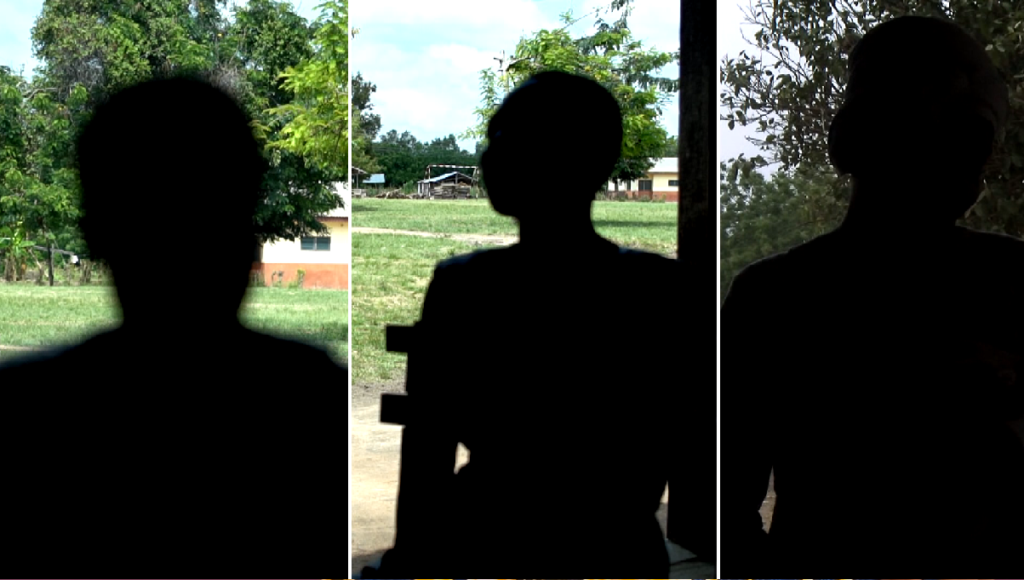
The policy, among other things, is to ensure girls who are pregnant get a second opportunity to continue their education during pregnancy and after childbirth. Prior to its introduction, school heads used their own discretion to allow pregnant girls or teenage mothers to remain in school.
As a result, some girls dropped out of school due to stigma, while others are asked to withdraw by their school heads.
But Shika, Laura and Gina admit that Adidome SHS has been of great help to them throughout their journey.
Shika, who is still carrying her baby, said she has supportive teachers and friends who are willing to sometimes carry out her heavy chores so she does not injure herself or her baby.
“The school has helped me. The teachers don’t let me work when my friends are working. At times, someone will fetch water down for me to bathe. Others will also assist me in washing my clothes and carrying my bag to school.”
The Adidome SHS has made a concerted effort over the years to provide supportive environments for pregnant schoolgirls and young mothers by reducing stigma and discrimination against them.
The headmaster of the school, Dr Vincent Atiku, told JoyPrime’s Emmanuel Dzivenu that “the fact that they’re pregnant doesn’t mean they can’t continue learning, and the pregnancy is for a period.”
“After that period, they should be able to return to school to continue with their education. We should accept these girls in our school, and educate the community about the support they need. Many of these girls are really very brilliant. They have all the capabilities; only the pregnancy came in, and that doesn’t mean that their lives should be terminated.”
Among other things, Dr Atiku said they are also taking steps including introducing clubs and guidance and a counselling unit that organises counselling sessions for girls to educate them on sex and sex education.
These measures he said are yielding results and the school has seen a decline in the number of pregnancies.
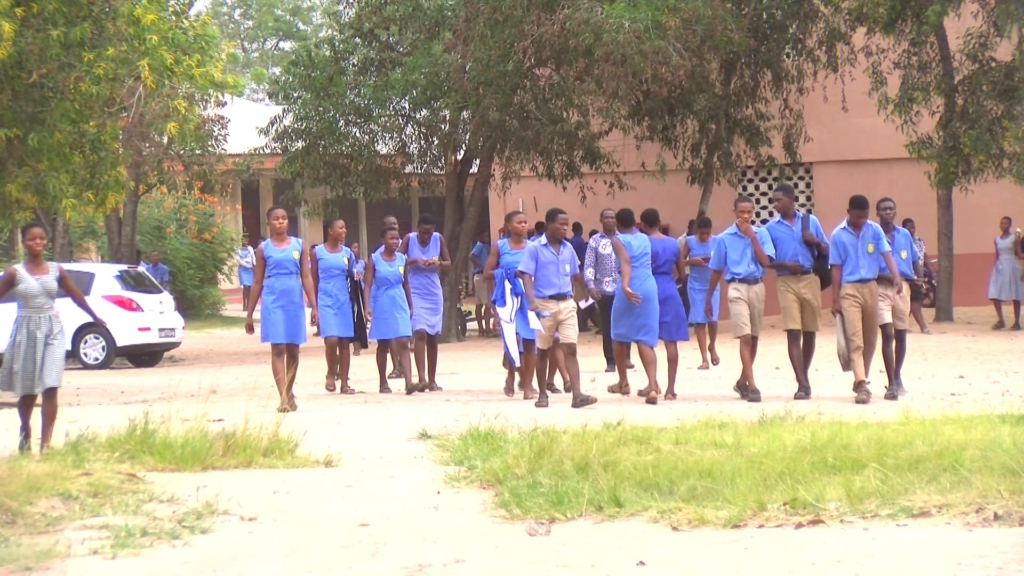
“I think now the attention should be drawn to the boys because we do this to the girls and they go out and these boys are – should I say harassing them. So now the attention should be on the boys…Let them know that they have great responsibility ahead of them as men.”
In cases where the pregnant girls are unable to return to school, Dr Atiku pleaded with the parents and guardians of these young girls to help them so they could focus on their studies.
“These girls when they’re well educated, life for them becomes better tomorrow. Aside from them, they are from various families. When the girls are better educated and they reach the top, when resources are around them, the girls become a benefit to these families, and they become great benefits for their generations too.”
Shika, who wants to be a soldier, Laura, who wants to be a nurse, and Gina, who wants to be a police, are all determined to succeed. They are focusing on the brighter side of life.
Shika has vowed to soldier on and achieved her dreams, while Laura is also determined to keep nursing her dreams to the top.
Latest Stories
-
Herman Suede is set to release ‘How Dare You’ on April 24
4 hours -
Heal KATH: Kuapa Kokoo, Association of Garages donate 120k to support project
4 hours -
KNUST signs MOU with Valco Trust Fund, Bekwai Municipal Hospital to build student hostel
4 hours -
The influence Ronaldo has on people, Cadman Yamoah will have same on the next generation – Coach Goodwin
5 hours -
Gender Advocate Emelia Naa Ayeley Aryee Wins prestigious Merck Foundation Awards
6 hours -
South Africa bursary scandal suspects granted bail
6 hours -
Ecobank successfully repays $500m Eurobond due April 18
6 hours -
Re: Doe Adjaho, Torgbui Samlafo IV, call for Unity among Paramountcies in Anlo
6 hours -
Extortion and kidnap – a deadly journey across Mexico into the US
6 hours -
Rihanna says fashion has helped her personal ‘rediscovery’ after having children
6 hours -
Development Bank Ghana targets GH¢1bn funding for commercial banks in 2024
7 hours -
Shatta Movement apologises to Ghana Society of the Physically Disabled after backlash
7 hours -
Sammy Gyamfi writes: Tema-Mpakadan Railway Project; A railway line to nowhere
8 hours -
Bright Simons: Is the World Bank saving or harming Ghana?
8 hours -
CAF Cup: RS Berkane banned from entering Algeria because of a map of Morocco with its Sahara
8 hours

